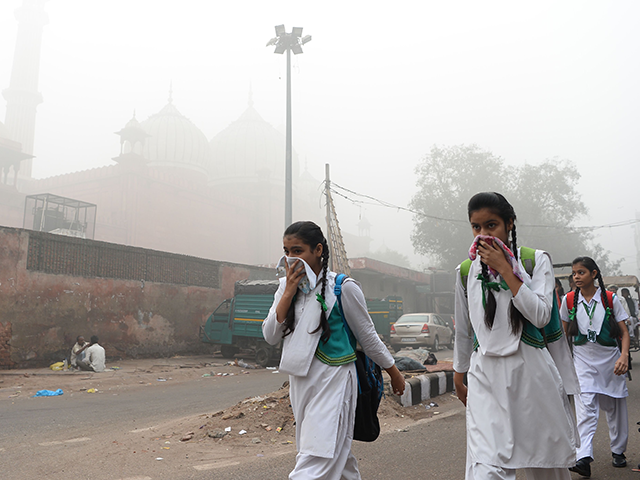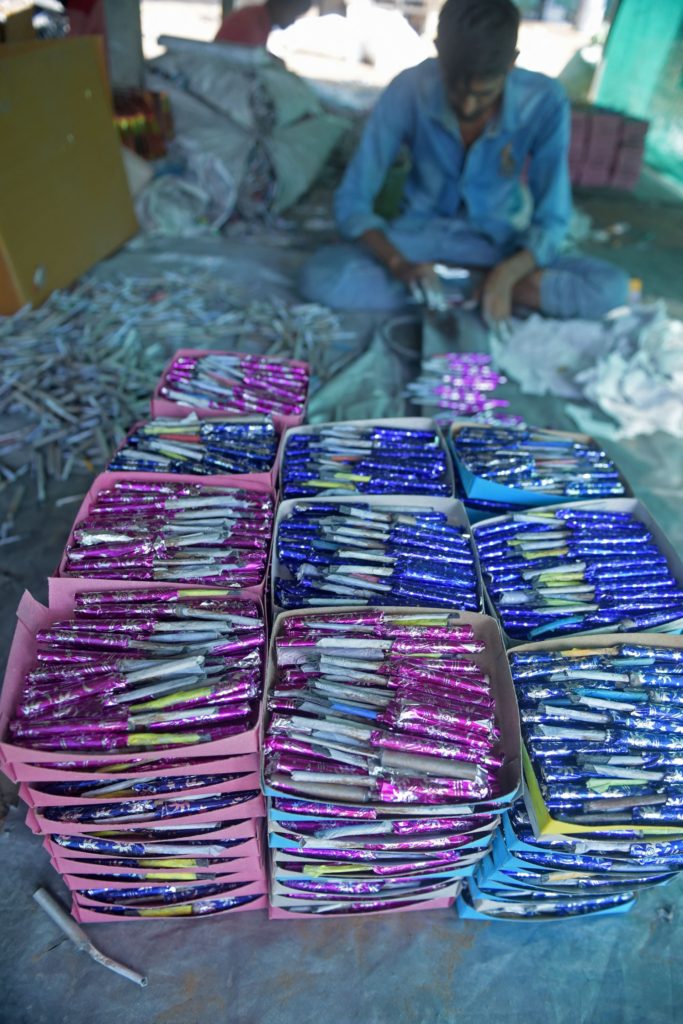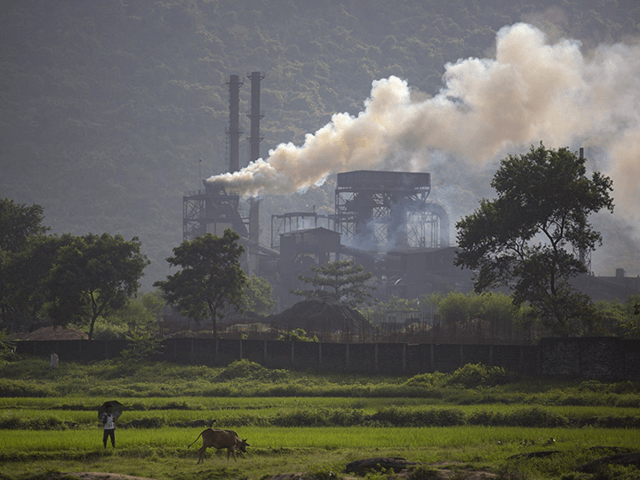Indian officials on Wednesday announced six of the eleven coal-fired power plants around New Delhi have been shut down in a bid to reduce air pollution, which has grown so oppressive that schools are closed, construction work has been banned, and a full lockdown of the city is under consideration.
“It’s a good step, but it’s too little too late. Pollution is something they should be addressing through the year, not in a knee-jerk reactive way,” pollution control activist Jyoti Pandey of the group Care for Air told the Financial Times on Wednesday.
“This is not an unknown emergency. This is something that happens every single year without fail. Half a billion people on the Indo-Gangetic Plain get completely shrouded by this toxic smog,” Pandey said.

Indian schoolchildren cover their faces as they walk to school amid heavy smog in New Delhi. (SAJJAD HUSSAIN/AFP via Getty Images)
New Delhi is rated as the world’s most polluted national capital, and India has ten of the 15 most polluted cities. New Delhi’s particulate contamination levels are 16 times higher than the maximum safe limit set by the World Health Organization (W.H.O.).
Much of New Delhi’s air pollution is produced by farmers burning agricultural waste. Some portion of the seasonal surge described by Pandey comes from the gigantic volume of fireworks set off by residents to celebrate the Diwali “Festival of Light” holiday.
![In this photo taken on November 6, 2019, farmers burn straw stubble after harvesting paddy crops in a field at a village near Sultanpur Lodhi. - Police have arrested more than 80 farmers in a northern Indian state for starting some of the fires blamed for the new pollution crisis in New Delhi and other cities, officials said November 7. (Photo by NARINDER NANU / AFP) / The erroneous mention[s] appearing in the metadata of this photo by NARINDER NANU has been modified in AFP systems in the following manner: [November 6] instead of [October 6]. Please immediately remove the erroneous mention[s] from all your online services and delete it (them) from your servers. If you have been authorized by AFP to distribute it (them) to third parties, please ensure that the same actions are carried out by them. Failure to promptly comply with these instructions will entail liability on your part for any continued or post notification usage. Therefore we thank you very much for all your attention and prompt action. We are sorry for the inconvenience this notification may cause and remain at your disposal for any further information you may require. (Photo by NARINDER NANU/AFP via Getty Images)](https://media.breitbart.com/media/2021/11/GettyImages-1180511752-1024x683.jpg)
Farmers burn straw stubble after harvesting paddy crops in a field at a village near Sultanpur Lodhi. (NARINDER NANU/AFP via Getty Images)

A labourer makes firecrackers at a workshop for the upcoming Diwali festival on the outskirts of Ahmedabad on October 20, 2021. (SAM PANTHAKY/AFP via Getty Images)
Much of the population has widely ignored the ban on fireworks and restrictions on burning agricultural waste and police have been slow to enforce them. Hindu nationalists condemn the Diwali fireworks ban as an assault on their religious freedom.

People watch fireworks along the banks of the river Sarayu during Deepotsav celebrations on the eve of the Hindu festival of Diwali in Ayodhya on November 3, 2021. (Photo by SANJAY KANOJIA/AFP via Getty Images)
India’s Supreme Court on Monday ordered offices in New Delhi and other polluted cities to be shut down so residents could work from home during the worst of the pollution crisis. The court also recommended emergency measures to reduce crop burning, cut industrial pollution, reduce the amount of dust in the air, and limit non-essential vehicle traffic.
The Supreme Court reportedly considered imposing a full coronavirus-style lockdown on New Delhi for an unspecified length of time, but apparently hesitated to order such extreme measures because several other cities with comparable air quality would have to be locked down as well.
Also, the Air Quality Index (AQI) for New Delhi improved just in the nick of time on Monday, although even the “improved” conditions are still four times higher than maximum safe pollution levels, and the lower AQI might not last.
Schools in New Delhi are currently scheduled to reopen on Monday. Some of those schools had only recently reopened after coronavirus lockdowns. Weather forecasters were hopeful on Wednesday that winds would pick up and disperse some of the city’s smog in time to reopen the schools next week.

COMMENTS
Please let us know if you're having issues with commenting.